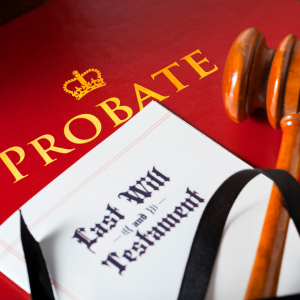
Dealing with your mother’s house when you’re still trying to process her loss is quite difficult and stressful. The bills don’t stop coming. Someone needs to mow the lawn. Your siblings are calling with questions, and you’re doing your best to hold it all together while figuring out what happens next.
The word “probate” keeps coming up, and it sounds like another mountain of stress you don’t need right now. But Texas gives you a few ways to handle your mother’s property without dragging yourself through months of court dates and legal fees.
Check out this guide to learn whether there’s a real chance you can avoid the worst of the probate process.
Can You Sell a Deceased Parent’s House Without Probate in Dallas, TX?
The short answer is maybe. It really depends on how the property title was set up when your mother was alive. Texas law does have some options that let you transfer ownership without spending months in probate court, but there’s a catch. You have to legally own the property before you can sell it. That means getting the title transferred to your name first.
You can’t just list the house and start taking offers. Title companies need proof that you have the legal right to sell, and they won’t move forward unless the ownership is completely clear.
So when people talk about “selling without probate,” what they really mean is using one of Texas’s legal shortcuts to transfer the title first, then selling the property once it’s officially yours.
When Probate Is Required in Texas
Most of the time, if your mother owned the house by herself with no special arrangements, probate is mandatory. Texas requires it to make sure her debts get paid, and the property goes to the right people.
Sole Ownership Without Transfer Documents
If your mother’s name was the only one on the deed and she didn’t file any transfer documents like a transfer-on-death deed, you’re looking at probate.
The court needs to verify who inherits and give them legal authority to handle the property. You can’t sell what you don’t legally own yet, and probate is how that ownership gets transferred to you.
Properties with Wills
Even if your mother left a will that clearly says you inherit the house, the court still has to validate it and give the executor legal authority to distribute her assets. Title companies won’t let you sell without that court approval, no matter how obvious it seems that the house should be yours.
Estates with Creditors or Family Disputes
Probate also becomes necessary when there are creditors involved or when family members disagree about who gets what. If your mother owed money to lenders, medical providers, or contractors, those creditors can make claims against the estate during probate.
The court acts as a referee to sort through competing claims and divide everything up according to Texas law. And if siblings or other relatives are fighting over the property, probate gives the judge power to make binding decisions that everyone has to follow.
Legal Ways to Transfer Title Without Going Through Probate
In Texas, there are some legitimate ways to skip probate entirely, but your mother had to set most of these up before she passed away. If she did any estate planning, you might have options that can save you months of court appearances and thousands in legal fees.
Transfer on Death Deeds in Texas

A transfer-on-death deed is probably your best-case scenario. If your mother filed one of these with Dallas County before she died, she basically designated who inherits the house automatically when she passes.
The deed just sits in the county records doing nothing until she dies, then you file her death certificate and a simple affidavit with the county clerk.
The property transfers to whoever she named on that deed without any court involvement. You’re not paying probate attorney fees or waiting for a judge to approve anything.
The whole process takes a few weeks instead of six months. Once the transfer is recorded, you own the house free and clear and can sell your home for cash in Texas whenever you want.
Joint Tenancy with Right of Survivorship
If your mother owned the house jointly with another person (maybe your father or even you) and the deed specifically says “with right of survivorship,” then the surviving owner automatically inherits the deceased owner’s share.
This is common with married couples, but some parents also add an adult child to the deed years before they pass for exactly this reason.
The surviving owner just needs to file an affidavit of death with Dallas County to update the records and show they’re now the sole owner. No probate needed. Once that affidavit is recorded, the title is clean, and the surviving owner can sell the property or do whatever they want with it.
Just make sure the original deed actually includes that “right of survivorship” language. If it doesn’t, you’re back to needing probate.
Using a Small Estate Affidavit to Sell Inherited Property
Texas created the small estate affidavit specifically for families dealing with modest estates. If everything your mother owned (bank accounts, cars, personal property, the house) adds up to $75,000 or less, you can use this shortcut.
Note that the homestead property itself doesn’t count toward that $75,000 limit, and neither do some exempt items like family allowances.
You have to wait at least 30 days after your mother’s death before you can file the affidavit. Then you fill out the form listing all her assets and heirs, get it notarized, and file it with the probate court.
The judge reviews it to make sure the estate qualifies. If everything checks out, you get a court order. That order gives you the legal authority to transfer the property title and sell the house without opening a full probate case. It’s way faster and cheaper than traditional probate.
Steps on Selling a Deceased Mother’s House in Dallas, TX Without Probate
Knowing your probate shortcuts exist doesn’t help much if you don’t know what to actually do next. Here are detailed steps to keep you guided:
Step 1: Verify Ownership and Title Status
Pull the property deed from Dallas County records and see exactly how your mother owned the house. Is she the only name on the title, or is there a joint owner or transfer-on-death beneficiary listed?
You can check this online through the county’s property records database, or you can go down to the county clerk’s office and request a copy in person. The deed tells you everything you need to know about ownership structure and whether any special transfer arrangements were set up before your mother died.
While you’re at it, order a title search from a title company because you need to know about any mortgages, liens, tax issues, or legal claims attached to the property. You might discover debts you didn’t know existed, like a second mortgage your mother took out years ago or a contractor’s lien from unpaid work.
Better to find out now than when you’re trying to close a sale, and everything falls apart because the title isn’t clean.
Step 2: Determine If You Qualify to Avoid Probate
Look at that deed and match what you see to the probate shortcuts we talked about earlier. Is there a transfer-on-death deed filed with the county that names a beneficiary? Does it show joint ownership with right of survivorship language?
If you’ve got either of those, you can skip probate entirely and just file the right paperwork with the county to transfer ownership. If not, start adding up everything your mother owned, including bank accounts, vehicles, personal property, and the house. Check if the total value stays under $75,000, excluding the homestead.
That qualifies you for the small estate affidavit, which is still way faster than full probate. If none of these situations match what you’re dealing with, you’re headed to probate court whether you like it or not. You should probably talk to a probate attorney about filing the right paperwork to get the process started.
Step 3: Gather Necessary Documentation
You should order multiple certified copies of your mother’s death certificate from the vital records office. Get at least five or six because every single person you deal with wants an original with the raised seal, not a photocopy.
The funeral home can usually help you order these if you haven’t already. Collect the original property deed if you can find it in your mother’s papers, along with recent mortgage statements if there’s still a loan on the house.
Also, find the last few years of property tax bills from Dallas County, homeowners’ insurance documents, and any estate planning paperwork she might have left behind, like a will, trust documents, or power of attorney forms.
You’ll need your own identification, too. This is your driver’s license, passport, whatever proves you’re actually her child and an heir to the estate.
If you’re using a small estate affidavit or transfer on death deed, download those specific forms from the county website or pick them up from the courthouse so you know exactly what information you’ll need to provide.
Step 4: Clear Any Outstanding Debts or Liens

Call the mortgage lender if there’s still a loan on the house and ask for the current payoff amount. Some loans have a due-on-sale clause that gets triggered when the owner dies, meaning the full balance becomes due right away. Find out if you can keep making monthly payments until you sell or if the lender expects immediate payment.
Check the Dallas County tax office website for unpaid property taxes because those don’t go away just because your mother passed. The county will eventually foreclose if taxes stay unpaid long enough.
If the house is in an HOA neighborhood, call the association and find out if there are outstanding dues or violations that need to be handled. Look through that title search for any mechanic’s liens from contractors who did work on the house and didn’t get paid. These liens stay attached to the property until someone settles them. They’ll have to be paid out of your sale proceeds.
Sometimes you’ll find out the debts eat up so much equity that selling barely makes financial sense, but at least you’ll know what you’re working with upfront instead of getting surprised at closing.
Step 5: Prepare the Property for Sale
Walk through the house and start clearing out your mother’s personal belongings unless you’re planning to sell it fully furnished, which most buyers don’t want anyway. This part is hard because you’re sorting through a lifetime of memories while trying to make business decisions about what has value and what doesn’t.
You need to decide whether you’re going to make repairs before listing or just sell the place as-is. Those fresh paint, new carpet, and basic fixes might help it sell faster and for more money, but if the house needs major work like a new roof or updated electrical, dumping thousands into repairs doesn’t always pay off.
Get the utilities switched into your name or the estate’s name so potential buyers can actually see the house with lights on and water running. Keep up with lawn maintenance and make sure the place looks lived-in and cared for, because vacant houses sitting empty for months start to deteriorate and attract break-ins or vandalism.
If you’re inheriting from out of state and can’t physically be there to manage everything, consider hiring a property management company to handle showings and maintenance. It costs money but saves you from constant trips to Dallas.
Step 6: List and Market the Home
Hire a real estate agent who’s dealt with inherited property sales before because they know the extra paperwork and documentation required to prove you have the authority to sell. They’ll list it on the MLS, schedule showings, and handle buyer negotiations. They’ll walk you through closing while making sure all the legal documents are in order.
Make sure you disclose upfront that it’s an inherited property so buyers and their agents know what they’re getting into. If the house needs lots of work or you just want to sell quickly without dealing with months of showings and repairs, you’ve got other options besides traditional listings. We’ll talk about those in a bit.
Whatever route you pick, just make sure the title company handling your closing knows from day one that this is an inherited property, so they can request the right documentation early. The last thing you want is to have a buyer ready to close and then discover you’re missing some obscure affidavit or court order that holds up the whole sale.
What Happens If Probate Can’t Be Avoided?
In most cases, there’s just no way around probate, and that’s okay. It’s not the end of the world, even though it feels like a giant pain when you’re already dealing with grief and family stress.
The Probate Process Timeline in Texas
Texas probate typically takes at least six months if everything goes smoothly, but it can easily stretch to a year or longer if complications pop up.
First, someone files an application with the Dallas County probate court to open the estate and get appointed as executor. Then, there’s a mandatory four-month waiting period for creditors to make claims.
The executor inventories everything your mother owned, pays off debts, files final tax returns, and distributes what’s left to heirs. Only after the judge officially closes the estate can you transfer the house title and sell it. This is why you’re stuck paying property taxes and maintenance costs for months while waiting.
Selling During Probate vs. After Probate
You can actually sell the house while probate is still open if the executor gets court permission first. The sale proceeds go into the estate account to pay debts, but at least you’re not carrying the property for another six months.
Selling after probate closes is cleaner because once the title transfers to you as heir, you own it outright and can sell whenever you want without asking a judge. The trade-off is you’re stuck maintaining and paying for a house nobody’s living in throughout the entire probate process.
Contact us today to explore your best options for selling your house fast and hassle-free in Tampa, FL.
Issues When Selling an Inherited House
Inheriting a house sounds like a blessing until you’re actually dealing with it. Then, all these problems you never thought about start crawling out of the woodwork. Here are the headaches that pop up most often.
Dealing with Multiple Heirs

If you’re not the only person who inherited the house, everyone has to agree on whether to sell, when to sell, and what price to accept. One sibling might want to keep it while you need the cash immediately, or everyone wants to sell but can’t agree on timing or listing price.
These fights can drag on for months while the house sits empty, racking up expenses. If you can’t reach an agreement, you might end up in court, forcing a sale through a partition lawsuit.
Handling Liens and Debts on the Deceased Parent’s House
Your mother’s debts don’t disappear when she dies. Those mortgage companies, contractors, the IRS, and medical providers all want their money, and these debts stay attached to the property until they’re settled.
They come straight out of your sale proceeds before you see anything. Sometimes, the liens eat up so much equity that selling barely covers what’s owed.
You might discover a second mortgage or contractor lien you never knew existed, and title companies won’t close the sale until every single debt is addressed.
Managing Property Maintenance and Expenses
An empty house still needs utilities, insurance, property taxes, HOA fees, lawn care, and repairs when things break, and these costs add up shockingly fast. Vacant homes also become magnets for squatters, thieves, and vandalism, or they just deteriorate from neglect because nobody’s there to catch problems early.
Someone has to check on the place regularly and handle maintenance. This is even harder if you’re managing everything from out of state.
There are Emotional Attachments to the Family Home
This was your mom’s house, and selling it can feel like you’re erasing her or giving away the last physical connection to her life. Other family members might push back on selling even when keeping it makes zero financial sense, or everyone’s got conflicting opinions about whether to move in, rent it out, or sell.
These feelings are completely valid, but they make practical business decisions really hard when emotions are running high.
Understanding Market Conditions and Timing
The Dallas real estate market doesn’t care that you’re grieving. You’re still subject to whatever’s happening with interest rates, inventory levels, and buyer demand when you list.
Sometimes you inherit during a slow market when houses sit unsold for months, other times it’s a hot seller’s market where properties fly off the shelf. If you price too high, the property sits there getting stale while you bleed money. Meanwhile, if you price too low, you leave cash on the table that could’ve gone to heirs who need it.
Working with Cash Buyers When Selling a Deceased Parent’s Home
Traditional real estate sales work great if your mother’s house is in good shape and you’ve got time to wait for the perfect buyer who’ll pay top dollar. But sometimes you just need to sell fast without dumping money into repairs or dealing with months of showings and buyer financing falling through at the last minute.
Cash home buyers in Dallas, TX, are companies or investors who buy houses as-is for, well, cash. They don’t care if the roof needs replacing, the foundation has cracks, or your mother’s 30-year-old wallpaper is peeling off in strips. You’re not fixing anything. They make you an offer based on the property’s current condition. If you accept, the whole thing can close in a week or two instead of the typical 30 to 60 days.
Frequently Asked Questions
Can I sell my mother’s house if I’m not the executor?
You can’t sell the house unless you have legal authority to do so, which usually comes from being named executor in the will or appointed administrator by the court. If you’re a beneficiary but not the executor, you don’t have the power to sell on your own. The executor handles that.
However, if all heirs agree and the executor gives permission, you might be able to work together on the sale. In cases where there’s no will and multiple heirs, everyone typically has to agree to the sale and sign off on it.
Do I have to pay taxes on an inherited house in Texas?
Texas doesn’t have a state inheritance tax or estate tax, so you won’t owe the state anything just for inheriting the property. However, you might owe federal estate taxes if your mother’s total estate exceeds the federal exemption limit, which is pretty high. Most people don’t hit it.
When you eventually sell the house, you could owe capital gains tax on any profit between the property’s value when your mother died and what you sell it for. The good news is you get a “step-up in basis.” The IRS values the house at what it was worth on your mother’s date of death, not what she originally paid for it, which usually reduces or eliminates capital gains.
What happens if my mother dies with a mortgage on the house?
The mortgage doesn’t disappear when your mother dies. Someone still has to make those payments or pay off the loan. If you inherit the house, you can usually take over the existing mortgage payments under federal law, even if your credit wouldn’t normally qualify for that loan.
Some heirs choose to keep paying the mortgage while they prepare the house for sale, then pay off the remaining balance from the sale proceeds. In some cases, especially if there’s not much equity, families decide it makes more sense to let the lender foreclose or negotiate a short sale. Just don’t ignore the mortgage. Communicate with the lender early, so they know what’s happening.
Can siblings force the sale of inherited property in Texas?
If one sibling wants to sell and others don’t, the sibling who wants to sell can file a partition lawsuit asking the court to force a sale and divide the proceeds. Texas courts generally favor partition by sale when co-owners can’t agree, especially if the property can’t be physically divided in a way that makes sense.
The process costs money for attorney fees and court costs. It usually damages family relationships, but it’s an option when you’re completely stuck. Sometimes, just threatening a partition lawsuit is enough to get everyone to the negotiating table to work out a compromise.
Key Takeaways: Can I Sell My Deceased Mother’s House Without Probate in Dallas, TX?
Selling your mother’s house without probate in Texas depends entirely on how she owned the property and what planning she did before she passed. Transfer-on-death deeds and joint ownership with right of survivorship let you skip probate completely if your mother set them up ahead of time. You just file some paperwork with Dallas County, and the title transfers without court involvement.
If you can’t avoid probate, it’s not the disaster everyone makes it sound like. Just reach out to Ready House Buyer at (214) 225-3038. We buy houses as-is and can help you close fast, even if you’re dealing with probate or dealing with complicated family situations!
Helpful Dallas Blog Articles
- Selling Your Foreclosed Home In Dallas, TX
- Do I Need A Lawyer To Sell My House In Dallas, TX?
- Can I Sell My Deceased Mother’s House Without Probate in Dallas, TX?
- Selling a House with Foundation Problems in Dallas, TX
- Can I Sell My Deceased Mother’s House Without Probate in Dallas, TX?
- How to Avoid Closing Costs in Dallas, TX

